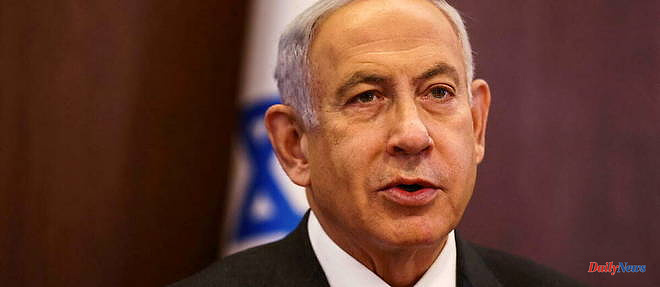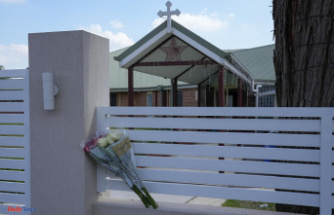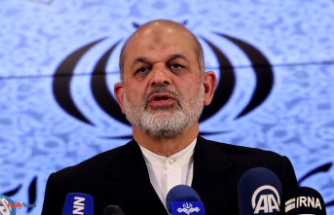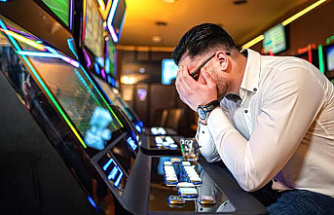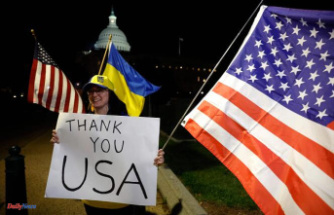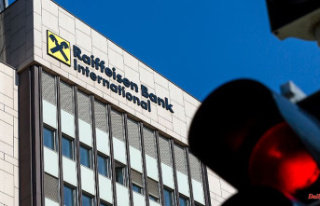After the attacks that hit East Jerusalem on Friday 27 and Saturday 28 January, Israel sealed off the family home of the Palestinian man who killed seven people on Friday. Binyamin Netanyahu has also announced the revoking of certain rights of the relatives of the perpetrators of anti-Israel attacks, in particular the revocation of the rights to social security of "families of terrorists who support terrorism".
The security cabinet, which met overnight, also announced that the home of Khayri Alqam, 21, the perpetrator of the attack that killed 7 people on Friday and who was shot dead by Israeli police, "would be sealed immediately before its demolition". On Sunday morning, an Agence France-Presse (AFP) correspondent saw Israeli forces on the roof of the building, whose entrances were sealed, as Palestinians collected their belongings.
For Israel, the demolitions of the homes of Palestinians accused of deadly anti-Israeli attacks have a deterrent effect, but critics of this practice denounce it as collective punishment and affecting families who find themselves on the streets.
Dani Shenhar, head of the legal department of the Israeli human rights organization HaMoke, said the sealing of the house in the middle of the night demonstrated the government's "revenge against the families". The measure was "taken in complete disregard of the rule of law", he said, and HaMoked will protest to the attorney general.
French President Emmanuel Macron urged Israelis and Palestinians not to "fuel the spiral of violence" after the attacks in East Jerusalem and the death of a Palestinian. During a telephone interview with Prime Minister Binyamin Netanyahu, "the President of the Republic recalled the need for all to avoid measures likely to fuel the cycle of violence", indicated the Elysée in a press release .
Binyamin Netanyahu said on Sunday that revoking the Israeli identity cards of the attackers' relatives was on the agenda of the weekly cabinet meeting. The measures announced are in line with the proposals of the Prime Minister's far-right political partners which enabled him to return to power at the end of December.
They are likely to apply in the first place to Palestinians with Israeli nationality (Israeli Arabs, according to the Israeli name) and Palestinians with the status of residents of East Jerusalem, part of the Holy City occupied and annexed by Israel.
Friday's attack near a synagogue in East Jerusalem's Neve Yaakov settlement neighborhood killed seven people. The author was shot. On Saturday, another 13-year-old Palestinian shot and wounded two Israelis in Silwan, a stone's throw from the Old City walls, before being injured. Neither of these two attacks, carried out by Palestinians from East Jerusalem, has been claimed.
The new violence comes against the backdrop of a sharp escalation after the death on Thursday of 10 Palestinians, including fighters and a woman in her 60s, in an Israeli army raid in Jenin, in the West Bank, Palestinian territory occupied by Israel since 1967. spiral of death that grows day by day extinguishes the rare glimmers of trust that exist between the two peoples,” Pope Francis lamented.
The outbreak of violence has sparked fears of further reprisals. A Palestinian home and vehicle in the occupied West Bank village of Turmus Ayya were set on fire overnight, an attack residents blamed on Israeli settlers. Contacted by AFP, Israeli forces did not comment. The official Palestinian Wafa news agency reported that 120 cars were targeted by stones allegedly thrown by Israeli settlers and 22 shops were attacked in the Nablus area of the West Bank on Saturday evening.
On Sunday morning, Israeli security guards killed a Palestinian man, Ali Ahmad Salman, 18, near the Israeli settlement of Kedumim in the West Bank, the Palestinian Health Ministry said, with the Israeli army saying he was armed .
Israel's security cabinet has also decided to make it easier to obtain gun permits. “When civilians have weapons, they can defend themselves,” said far-right Minister of Internal Security Itamar Ben Gvir.
Calls for restraint have multiplied from abroad and US Secretary of State Antony Blinken is expected in Jerusalem and Ramallah (West Bank) on Monday and Tuesday to discuss measures for de-escalation.
The Palestinian Authority held that Israel was "fully responsible for the dangerous escalation".
On Thursday, nine Palestinians were killed in an Israeli military raid in Jenin, in the West Bank, presented by Israel as a preventive action against a cell of the Palestinian armed group Islamic Jihad. The following night was marked by rocket fire from Gaza into Israel and Israeli strikes on this micro-territory under blockade without any casualties.
An Israeli court on Sunday additionally sentenced a Palestinian man to life in prison and another 20 years in prison after convicting him of the rape and murder of a young Israeli woman, according to the judgment published by this court.
Israeli opposition MP Mickey Levy expressed concern that "what happened 20 years ago [is starting] to happen now" in a reference to the Second Intifada, the Palestinian uprising from 2000 to 2005.

